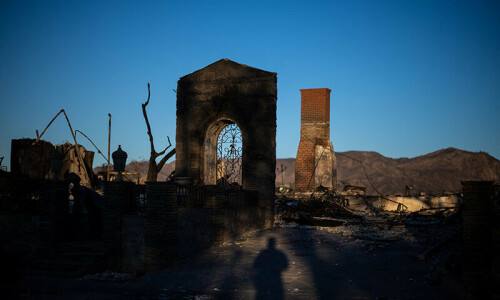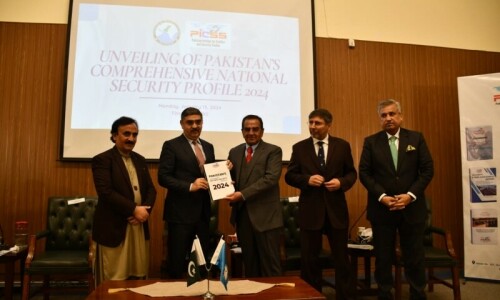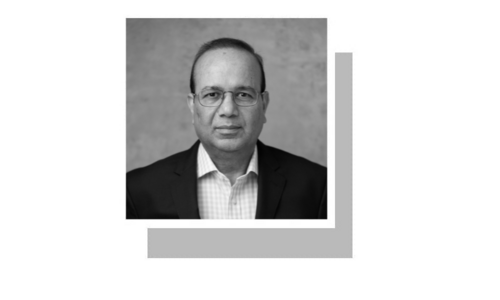Pakistan has consistently failed to recognize sports. Our demands for athletes to compete with the best in the world lack cohesion with our ability to realize the importance of promotion and lack of money injection.
“Sport has the power to change the world,” said Nelson Mandela, one of the greatest leaders of our time. “It has the power to unite people in a way that little else does. Sport can create hope where once there was only despair.”
The active participation in sports improves community health and productivity, imbibes discipline in character, generates great leaders, and enhances social interactions. The execution of a mega-sporting event helps in developing infrastructure, generates employment, secure inflow of foreign capital and thus contributes significantly to the economic development of a country.
Hence the impact of sports on the economy can be categorized as being multi dimensional. It surely adds more benefit than what is visible to the layman.
The Olympics medal table is a major indicator of countries and their socio-economic position. To further elaborate this point, following is Pakistan’s Olympics medals position since 1948. This table shows how the deterioration in sports coincides with Pakistan’s overall decline in welfare and conditions of the country.
Sports can safely be categorized in the modern times as an industry. According to a study by A.T. Kearney — a global management consulting firm — the sports industry is expanding globally at a much higher rate than the Gross Domestic Product growth, a universal measure of economic performance.
Investors are ready to penetrate the market in order to increase profits, enhance brand value as well as drive economic development. The market for sports events, including revenues from tickets, media rights, and sponsorships opens a tremendous opportunity for the risk-conservative as well as averse industry players to delve into the industry, provided they pay attention to the key value drivers and manage their business models with vigilance.
With an annual growth of 7% from 2009 to 2013, the sports market has grown faster than GDP in most developed countries of the globe, especially in major markets that include US, Brazil, the UK and France.
Long term prospects are strong. The revenues for yearly events are growing steadily, from $58 billion in 2009 to $75 billion 2013 and $80 billion in 2014. When you add in sporting goods, apparel, equipment, and health and fitness spending, the sports industry generates as much as $700 billion yearly, or 1 percent of the global GDP.
Unfortunately in Pakistan, this industry is used as a bargaining tool by the people in command. Most of the sports bodies are run by politically powerful people with no passion and professional capabilities.
Despite having a colossally rubbish strategy towards sports promotion, this country has generated some remarkable athletes who have given much more than pride to the nation. It is a testament to the hunger and drive of the nation that they have competed against more financially-supported sportsmen.
Perhaps the social benefits and the welfare of its people might not urge investors or politicians to think about promoting this industry, but it sure makes them look stupid if they are denying the monetary benefits it provides.
Performance in Olympics since 1948
(Tabulated under rank, year, gold, silver, bronze total):
20 | 1948 | 0 | 0 | 0 | 0
20 | 1952 | 0 | 0 | 0 | 0
31 | 1956 | 0 | 1 | 0 | 1
20 | 1960 | 1 | 0 | 1 | 2
30 | 1964 | 0 | 1 | 0 | 1
29 | 1968 | 1 | 0 | 0 | 1
33 | 1972 | 0 | 1 | 0 | 1
37 | 1976 | 0 | 0 | 1 | 1
— | 1980 | did not compete
25 | 1984 | 1 | 0 | 0 | 1
46 | 1988 | 0 | 0 | 1 | 1
54 | 1992 | 0 | 0 | 1 | 1
— | 1996 | 0 | 0 | 0 | 0
— | 2000 | 0 | 0 | 0 | 0
— | 2004 | 0 | 0 | 0 | 0
— | 2008 | 0 | 0 | 0 | 0
— | 2012 | 0 | 0 | 0 | 0
Published in Dawn, September 11th, 2015
On a mobile phone? Get the Dawn Mobile App: Apple Store | Google Play













































